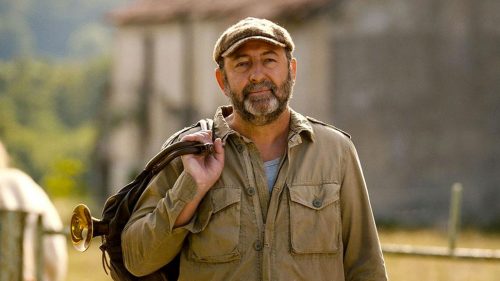
When faced with the cinematic oeuvre of Claude Lelouch– more than fifty films over sixty years of career – one might feel a bit lost, like standing before the life of a patriarch who has poured overwhelming passion into everything he has touched (cinema, love, speed, life). We are dealing with one of the most mistreated directors in the history of cinema: his incurable dedication to a simple, essential form of cinema, tackling basic themes like the love between a man and a woman, has often been interpreted, at worst, as a tendency toward overly sweet sentimentality, or at best, as a cinematic imitation of the photo-novel. In reality, Lelouch is the director who most ingeniously tackles the obscene in cinema: yes, the obscene, the off-screen aspect of eros, what happens outside the sexual act itself, like the fragmented phrases, the endless gazes between a man and a woman falling in love, the unconscious movements of bodies attracted to one another. Lelouch is a director in whom determination and courage go hand in hand. This is evident in the numerous clues scattered throughout his films, revealing his passion for extremely long, almost brazen close-ups, or for wordless flashbacks that last an eternity (I think of the one in A Man and a Woman that lasts as long as the samba by Vinicius de Moraes and Baden Powell, which serves as its soundtrack). The result is films with an uncertain rhythm, that move forward but often also backward, where the plot is more the result of a mental process than of linear narration. These films may not be the most beautiful, but they certainly possess the gift of necessity, stitched to the radicality of love, nostalgia, and solitude. They share the same ‘imitative DNA’ as troubadour or baroque poetry, focused, just like Lelouch’s cinema, on exploring the same, indispensable theme in a thousand different ways.

Lino is a successful lawyer with an apparently perfect life: he has a remarkable career and his family is more united and solid than ever. However, after a health issue, he finds himself inexplicably losing all inhibitions: incapable of lying or engaging in any kind of diploma...
The perfect melodrama chemistry of this film is impossible to define. Yes, of course, the actors, Francis Lai’s soundtrack, that alternation between color and black & white, the Nouvelle Vague filming techniques, those dialogues so elusive that they have yet to merge with the aesthetic of French luxury advertising, as our director would later do… No, it’s the image of the man walking on the beach with his dog that is the heart of this masterpiece; it’s life passing us by as we watch a film.
Lelouch tackles History, depicting the lives of four families of musicians and dancers scattered between Paris, Berlin, Moscow, and New York from 1936 to 1980, who come together in the stirring Bolero that closes the film.
In August 1976, Lelouch, a lifelong lover of fast cars, mounted a camera on his Mercedes-Benz and sped through the streets of Paris for ten minutes, from Place Dauphine to the Sacred Heart. Watch the video on YouTube: 40 years before GoPros and Instagram posts, it’s a small testament to how this director was always a lover of pure speed and absolute risk.
The second chapter of the Anne Gauthier and Jean-Louis Duroc saga. Twenty years later, critics responded with disdain and a wagging finger.
The third chapter, sad, solitary, and final, yet Lelouch’s optimism remains, simmering beneath the surface, ready to explode at any moment.